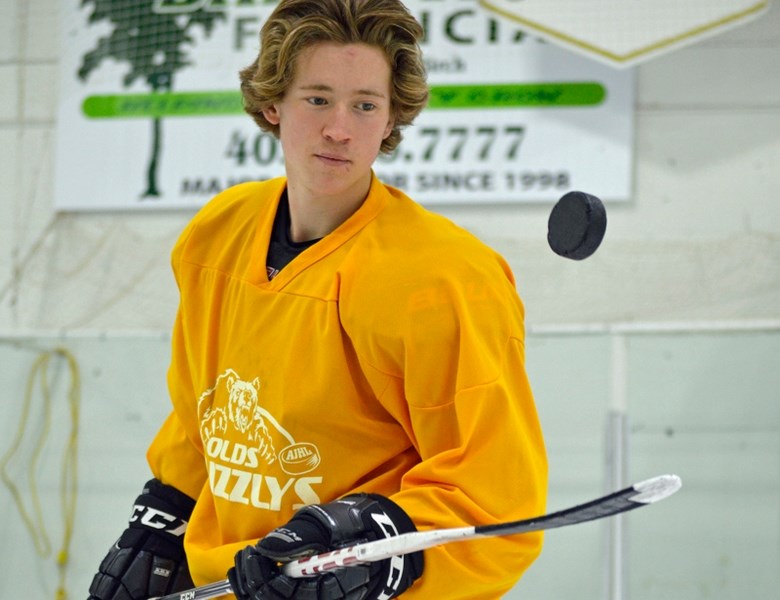When you discuss the type of legacy Chase Olsen wants to leave behind as captain of the Olds Grizzlys, it's about making sure the team remains every bit the team that was so attractive to him as a kid.
To do that, he wants to continue to lay down a blueprint of community service and outreach, to be used as an example for those in the future, should they lose their way.
"Every organization and business has its highs and lows," Olsen says. "I want them to be able to look back at what we did now so they don't have to make all these steps to get back to the top."
Recently, Olsen and his teammates have spent their off-ice hours doing activities like trick-or-treating with billet children or showing up at people's doorsteps offering to do yard chores. They've also been getting to know clients from Padnoma Support Services.
The point is to break out of the silo that the rink can become; to gain new perspectives and become more rounded as people.
What's more, coach Dana Lattery hopes that it's done in earnest. He sees visiting schools and getting a hero's welcome as low-hanging fruit. He wants players to be genuinely interested in building a relationship with residents.
"It's who we are, it's not something we're trying to be," Lattery says.
Olsen's journey to the Grizzlys started when he was 15 years old, when he signed a white card with Drumheller, an agreement that precludes other teams from recruiting a player who has committed to one already. However, a white card is no guarantee of a roster spot.
Grande Prairie acquired his rights through a trade, but later cut him. He ended up finishing midget AAA hockey in Red Deer, affiliating with the Grizzlys for a year before getting signed last season. He says he feels blessed to have been cut, as that gave him the freedom to choose Olds.
He finished second in league scoring last year but missed out on the Rookie of the Year award. He's diplomatic about that decision.
"I thought it was a really competitive rookie of the year nomination. Anybody could have won it," Olsen says.
Lattery believes that success on the ice follows that which comes off of it -- that teammates who care about each other play better. He takes it as their responsibility to leave the organization better than they found it.
"I just look back on when I played here. I finished a lot of video games. Looking back, I had so much time to do something and I did nothing," he says.
"Our job as their leaders is to step in and say ‘no, we're going to push you to see stuff and grow your spirit into a better person.'"
"I want them to be able to look back at what we did now so they don't have to make all these steps to get back to the top." CHASE OLSEN



